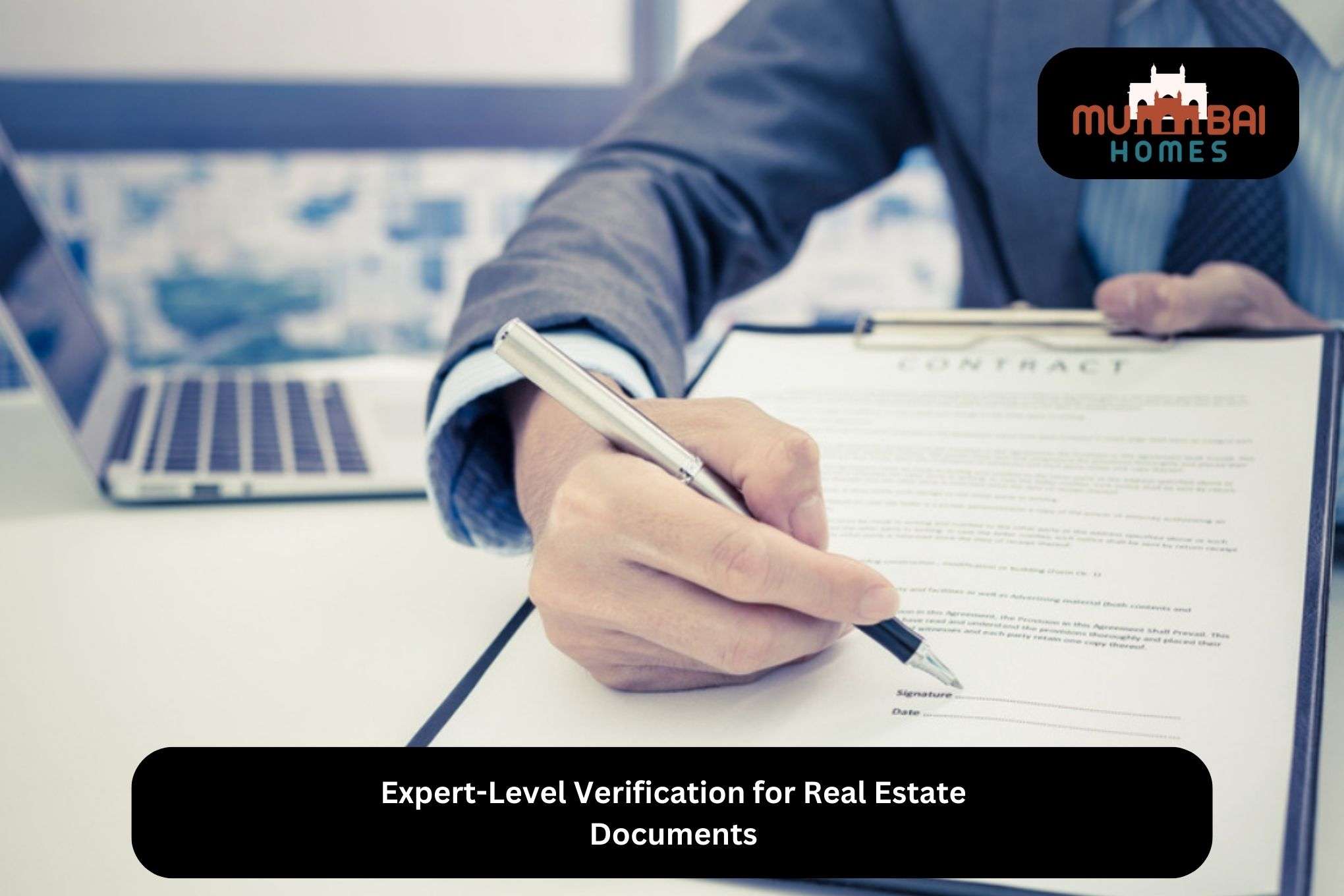Expert-Level Verification: Guidelines for Independent Real Estate Document Verification:
Real estate transactions contain several legal and financial intricacies, making it essential to conduct thorough record verification. Expert-level verification in the real estate industry plays a pivotal role in ensuring transparency, and confidence of all events concerned.
Additionally, it highlights the significance of building plans, environmental clearances, agreements, tax and financial documents, and regulatory approvals in the verification process.
Guidelines for Independent Real Estate Document Verification
1. Analyzing the Role of Experts in Conducting Independent Document Verification
Expert-level verification in real estate entails the development of educated professionals who possess in-depth information on real estate laws, property regulations, and industry practices. These experts, frequently comprise real estate specialists to ensure their authenticity, accuracy, and compliance with relevant legal guidelines. Independent verification is important to protect shoppers, and sellers, from potential risks and financial risks in the real estate market.
2. Discussing the Scope and Objectives of Expert-Level Verification in Real Estate
The primary objective of expert-level verification is to assess the legal, financial, and regulatory factors of the real estate transaction.
Key factors of its scope consist of
A. Title Verification: Verifying the property’s possession history and making sure there are no liabilities or disputes over the title.
B. Legal Compliance: Confirm that the property adheres to nearby zoning legal guidelines, building codes, and different legal necessities.
C. Financial Assessment: Examining economic documents to examine the property’s value, pending loans (if any), and different financial liabilities.
D. Environmental Clearance: Ensuring that the properties have obtained important environmental clearances and adhere to sustainability standards.
E. Agreements and Contracts: Analyzing agreements among the buyers, sellers, and different involved parties to become aware of any ambiguous clauses or potential risks.
3. Exploring the Types of Documents to be Verified During the Process
Expert-level verification entails exploring diverse documents related to the property and the transaction.
Some essential documents consist of:
A. Title Deeds: Establishing the chain of ownership and ensuring there aren’t any legal disputes.
B. Sale Deeds: Verifying the legitimacy of the sale, transfer of ownership, and adherence to the relevant laws.
C. Building Plans and Approvals: Checking if the construction plans are authorized by way of the applicable authorities and following guidelines.
D. Environmental and Regulatory Clearances: Ensuring the properties have obtained the important environmental and regulatory clearances and adhere to local guidelines.
E. Agreements and Contracts: Reviewing sale agreements, lease agreements, and different contracts to safeguard the interests of all parties.
F. Tax and Financial Documents: Examining property tax receipts, income tax filings, and financial statements to examine the property’s financial health.
4. Highlighting the Significance of Legal and Title Documents in the Verification Process
A. Title Documents: A clear and marketable title is important to make sure the buyer gets rightful ownership without legal complications.
B. Sale Deeds: These documents function as evidence of the property’s transfer of ownership, and their authenticity is legal in avoiding future disputes.
C. Encumbrance Certificate: Verifying this certificate facilitates making sure the property is free from any pending legal or financial liabilities.
5. Understanding the Need for Verification of Building Plans and Approvals
A. Compliance with Regulations: Verification of building plans and approvals guarantees that the property adheres to local building codes and zoning legal guidelines.
B. Structural Integrity: Reviewing the building plans enables investigation of the property’s structural stability, ensuring protection for occupants.
C. Avoiding Illegal Constructions: Verification prevents potential issues arising from unauthorized constructions or deviations from accredited plans.
6. Discussing the Importance of Environmental and Regulatory Clearance Documents
A. Environmental Impact: Ensuring environmental clearances are in place safeguards against ecological risks and contributes to sustainable development.
B. Legal Compliance: Possession of necessary regulatory clearances ensures the property’s legitimacy and minimizes legal challenges.
C. Project Viability: Verification of those documents indicates that the task is feasible, reducing the hazard of future disruptions.
7. Analyzing the Verification of Agreements and Contracts Related to the Property
A. Risk Assessment: Reviewing agreements helps pick out ability risks and differences, enabling parties to deal with them before finalizing the deal.
B. Fairness and Transparency: Verifying agreements fosters transparency and ensures that each party is treated fairly in the transaction.
C. Binding Obligations: Understanding the terms of agreements facilitates parties to realize their legal responsibilities and obligations.
8. Understanding the Role of Tax and Financial Documents in the Verification Process
A. Property Valuation: Analyzing financial documents helps in determining the property value, aiding buyers in making informed selections.
B. Financial Health of the Property: Reviewing financial statements gives insights into the property’s financial status and ability risks.
C. Loan Liabilities: Verification of pending loans guarantees that the buyer is aware of any current liabilities associated with the property.
Conclusion
Expert-level verification within the real estate domain is indispensable for setting up beliefs, ensuring legal compliance, and minimizing financial risks. By meticulously verifying legal, title, environmental, and financial documents, stakeholders could make informed decisions, safeguarding their interests and contributing to a transparent and thriving real estate market.
FAQ
1. Why is independent document verification crucial in actual estate transactions?
ANS. Independent verification ensures transparency, mitigates risks, and safeguards the interests of all parties involved, fostering a fair and trustworthy real estate market.
2. What are the key documents to be validated during expert-level verification?
ANS. Important documents encompass title deeds, sale deeds, building plans, environmental clearances, agreements, and financial documents.
3. What is the importance of title documents within the verification process?
ANS. Title documents establish ownership history and make sure the absence of legal disputes, providing a clear and marketable identity for the property.




